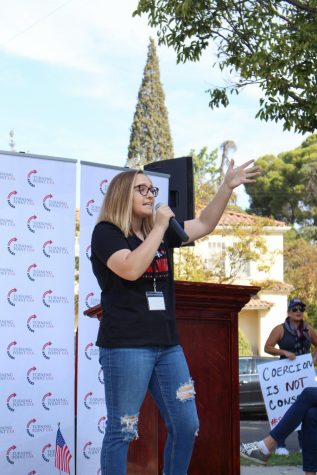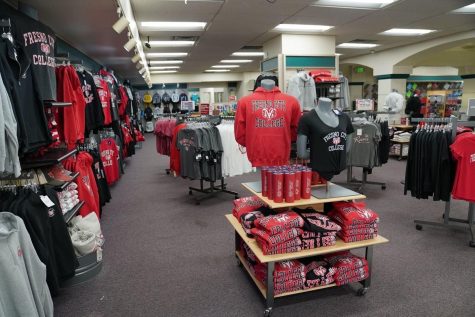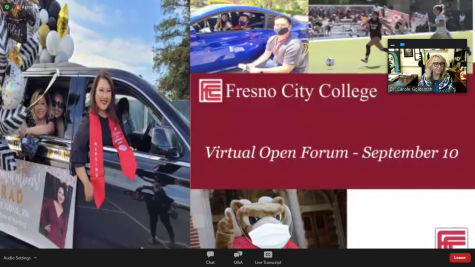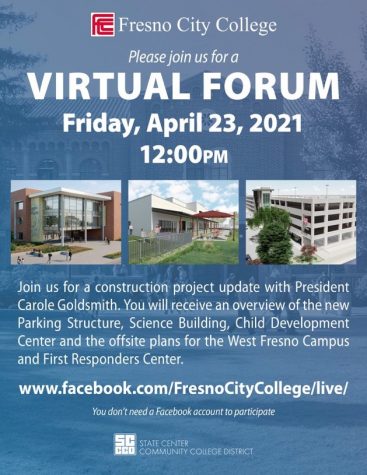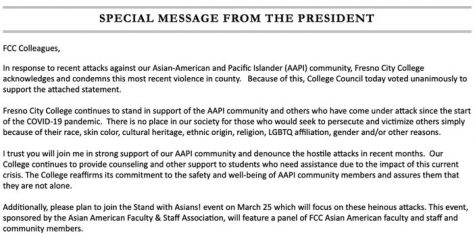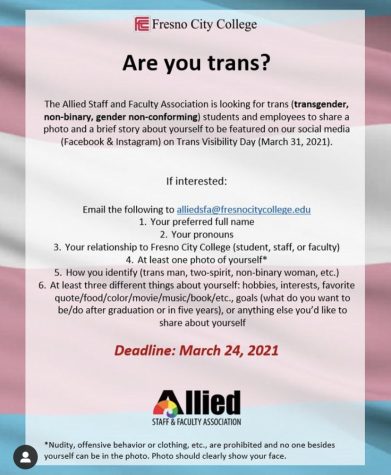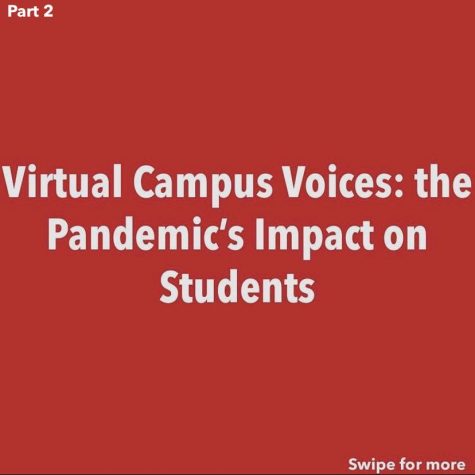How a Photography Class at Fresno City College is Adapting to Remote Learning
Fresno City College’s photography instructors have struggled to find new ways of teaching and keeping students engaged during the pandemic.
Sylvia Flores adjunct instructor teaches two introduction to photography classes this spring semester at FCC, prior to the pandemic, she taught both online and in-person.
For Flores, the transition from in-person to remote learning was abrupt and overwhelming for her and her students.
“Students were stunned and we, as teachers, needed to show grace and flexibility while at the same time holding students accountable for completing the course material and submitting their work,” she said.
She recalls spending a lot of late nights working to get the course materials organized into an online format for Canvas.
Since it is hard to substitute hands-on learning and in-class demonstrations in an online setting, Flores believes remote learning is not equivalent to being able to teach in-person where she can give feedback and guidance quickly.
Due to the sudden shift, assignments had to be altered to provide the best teaching standard the professor could offer.
For Flores, this meant activities done in-person were now assignments that had to be completed at home with only written feedback from the instructor.
For example, assignments such as telling a visual story through photos and visiting a photo gallery to write a photo critique about their experience had to be modified.
Despite having to revamp assignments, Flores has found some students still like the photo projects because it, “Enables them to get out of their homes, see their neighborhoods in a new light, gain a new appreciation for their communities and allowed them to express their emotions and pandemic experiences in an artistic way.”
Other roadblocks Flores has faced include having to learn how to use Canvas as well as constantly encouraging students they can reach out for extra help or clarification.
Flores theorizes there are many factors keeping students from reaching out such as feeling shy or embarrassed, not wanting to bother, hectic family, work or school schedules, lack of knowledge on how to use Zoom or unreliable internet connection.
In regards to getting help with teaching tools, Flores feels FCC faculty and staff have been very helpful in providing learning opportunities to develop online teaching skills through training like the Faculty Bootcamp and the Assessment and Universal Design in Online Teaching courses.
Based on class survey results for the last two semesters, Flores has found most students are still enjoying the online version of a photography class and feel they are able to learn a lot about photography.
In addition, the flexibility of an online class fits well with the many other commitments students have in their lives right now.
However, some have expressed they miss student-to-instructor and student-to-student interaction most of all.
Photography major at FCC, Julia Turner, is currently enrolled in two photography classes, photo-18: digital black and white photography and photo-23: advanced photoshop.
Since the courses are asynchronous, meaning there are no mandatory Zoom meetings, each class mostly utilizes lots of discussion boards and assigned readings which she still enjoys.
In addition, both classes use Canvas and programs like Photoshop, Lightroom, and Camera Raw.
Overall, Turner feels it’s unfortunate FCC was not prepared for the pandemic and the lack of anticipation of something like it shows in the quality of instruction.
However, she still believes classes are about as good as they can be for being both online and asynchronous.
With doubts of the current instruction improving soon she says, “At the end of the day there’s really nothing we can do about it besides make the most of our current situation.”
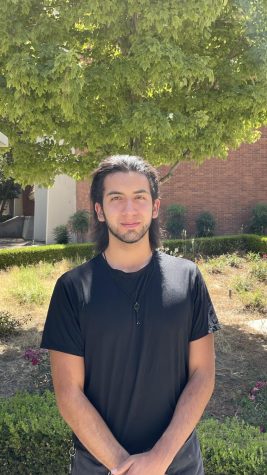
Ernesto Cervantes is a Journalism major at Fresno City College and goes by he/him pronouns. Ernesto is a first generation Mexican American who was born...

